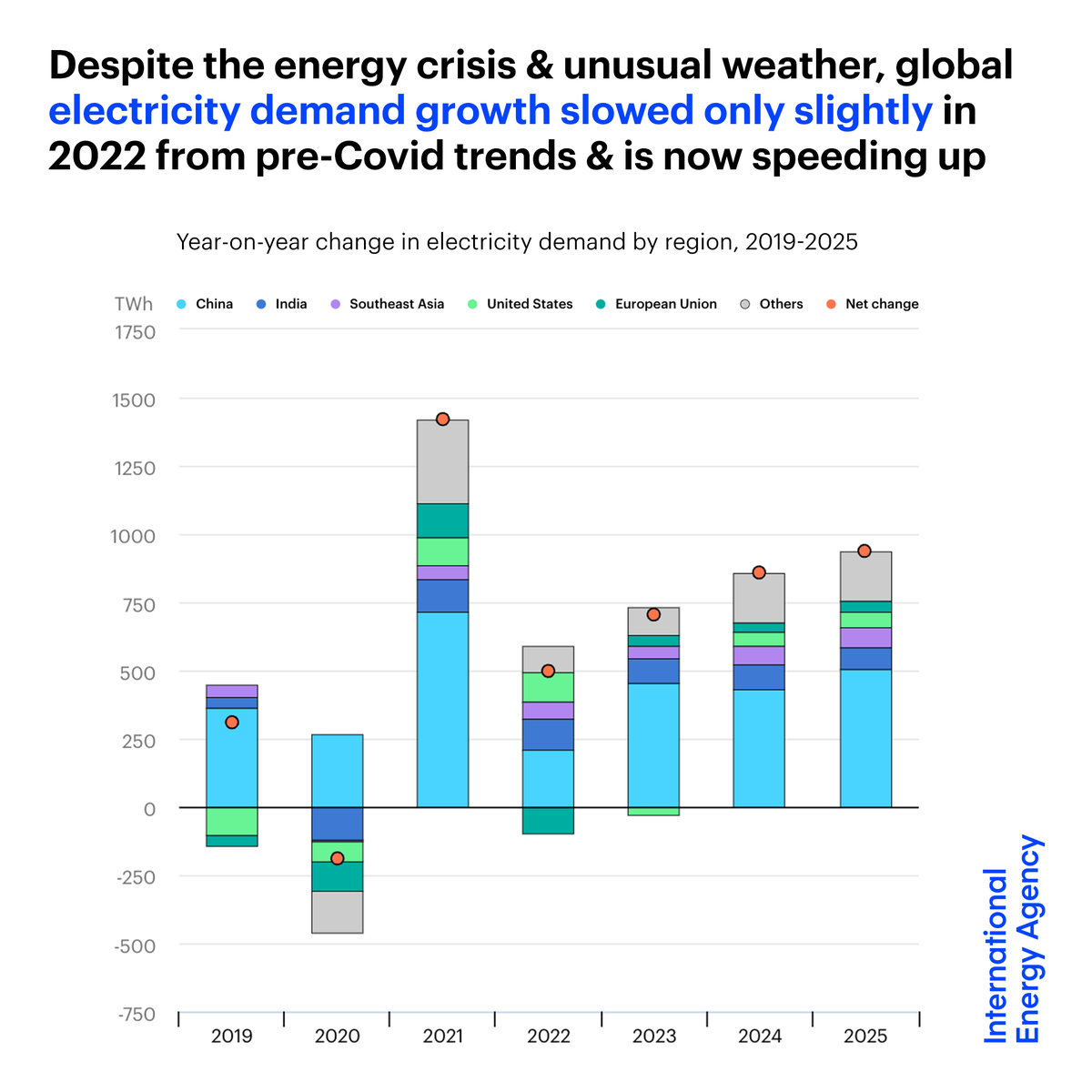
Despite the energy crisis & unusual weather, growth in global electricity use slowed only slightly in 2022 from its pre-Covid trend
This shows the resilience & increasing importance of electricity today
And growth is set to accelerate in the years ahead: iea.li/40EE6WM
This shows the resilience & increasing importance of electricity today
And growth is set to accelerate in the years ahead: iea.li/40EE6WM

Renewables & also nuclear power are set to cover almost all the growth in global electricity demand through 2025
This suggests a tipping point is near for power sector emissions
Governments need to act now to speed up the growth of low-emissions sources: iea.li/3XfnSjJ
This suggests a tipping point is near for power sector emissions
Governments need to act now to speed up the growth of low-emissions sources: iea.li/3XfnSjJ

Emerging & developing economies in Asia are driving the faster growth in global electricity consumption
Over 70% of the rise in global electricity demand through 2025 comes from China, India & Southeast Asia
By 2025, a third of the world’s electricity will be consumed in China
Over 70% of the rise in global electricity demand through 2025 comes from China, India & Southeast Asia
By 2025, a third of the world’s electricity will be consumed in China

Global CO2 emissions from electricity generation hit a record high in 2022 & are set to plateau to 2025, based on current policies
Putting emissions into decline while ensuring energy security requires faster expansion of renewables & nuclear power and boosting #EnergyEfficiency
Putting emissions into decline while ensuring energy security requires faster expansion of renewables & nuclear power and boosting #EnergyEfficiency

• • •
Missing some Tweet in this thread? You can try to
force a refresh

















